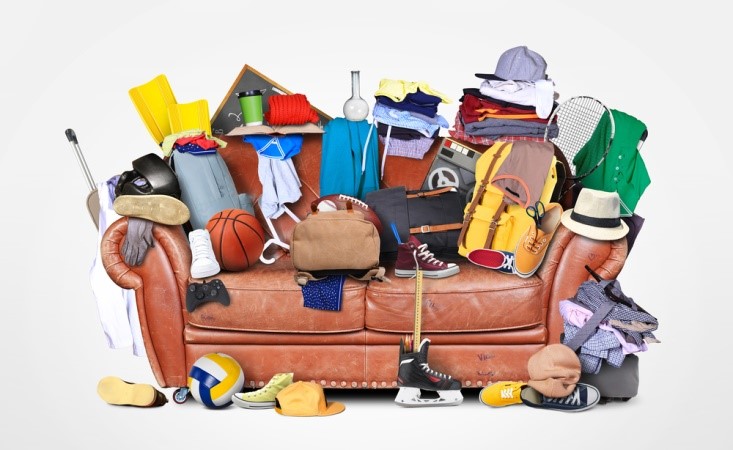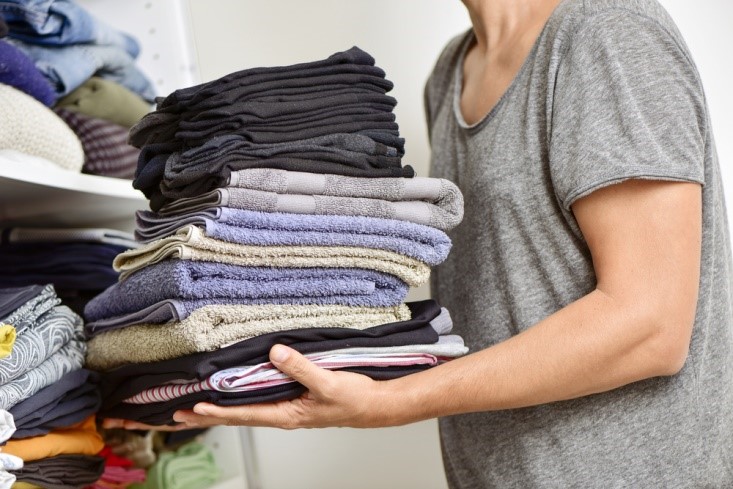It’s hard to believe that another year has come and gone – and your home is still the unruly mess it always was. Despite last year’s resolutions to sort through your closets and clean out your cupboards, your home remains as cluttered and chaotic as ever.
However, with renewed determination and a foolproof plan, you can’t fail to clean up your house in 2017. The following home transformation strategy will get your living space under control in under a month (without making you feel overwhelmed) – which gives you 11 more to rebuild the mess before 2018.
Week 1: Kitchen
Day 1: Drawers. Any utensils that are burned, melted, mismatched, or unused (such as outgrown baby spoons) should be donated or tossed out. Once your drawers are empty, you should scrub them thoroughly and consider replacing the lining paper.
Day 2: Cabinets. The same tactics should be used here, but instead of utensils, you will be looking for unwanted or unusable cookware or appliances. Additionally, organization is even more important in cabinets, as unstable stacks of bowls or pots can crash to the ground with the slightest provocation.
Day 3: Pantry. Newsflash: Canned goods can go bad, and so can items like chips, dried pasta, soda, and flour. You should toss everything that is well past its expiration date, and donate shelf-stable foods you know you’ll never eat. Then, organize your pantry by food type.
Day 4: Fridge and freezer. Just because something isn’t moldy doesn’t mean it isn’t bad. You should take some time to check expiration dates on bottles and jars, inspect packages for freezer burn, or perform sniff tests for edibility. You should also wipe off fridge shelves and chip away at ice in the freezer quickly, before all your food thaws.
Day 5: Junk storage. Every home has at least one junk drawer, and most have an entire junk cabinet. You probably don’t need to sift through your junk storage space with a fine-toothed comb, but you should peek in to extract obvious trash or useful items that belong elsewhere.
Week 2: Living Room and Bathrooms
Day 1: Bookshelves. You can never have too many books – until you do. Odds are you and your family won’t reread more than half of the tomes sitting on your shelves, which means you should be able to get rid of them without feeling illiterate. If your bookshelves are covered not by well-read volumes but instead by pointless clutter, remove the junk and make a rule about what items are appropriate for your bookcase.
Day 2: Storage furniture. The chest that serves as a coffee table, the entertainment center that hides your electronics, the desk in the corner piled high with who-knows-what – all need to be sifted through and sorted. In the end, you might realize that you don’t need the additional storage in the living room, anyway.
Day 3: Linen closet. Somehow, sheets and towels get mixed into the same pile; washcloths offset the delicate balance of stacked linens; and your bathroom closet becomes a storage space for toys and clothes. Filter out the items unnecessary in the bathroom and reorganize the towels and sheets into neat stacks.
Day 4: Shower. People often overlook the clutter in their showers, assuming guests will never peer past the curtain and judge the mess. However, shelf space is at a premium in the shower, so any body wash or shampoo that is unused should be tossed pronto. While all the bottles are removed, you can wipe away soap scum and mildew that you didn’t notice during your morning rinse.
Day 5: Medicine cabinet. Like canned goods, medications can go bad. Sort through your ancient cold meds, pain relievers, and prescriptions and toss those that might endanger your family’s lives. You should also get rid of all those lotions you’ve been given during the holidays – you’ll never use them.
Week 3: Bedrooms and Office
Day 1: Closet and dresser. If you haven’t sifted through your clothes in a while, now is the time. Clothing that is too big or too small should be given up, as should outdated styles or loathed outfits.
Day 2: Nightstand. Covered in hair ties, lotions, scraps of notes, jewelry, half-empty water bottles, and other odds and ends you shed while you are comfy in bed, your nightstand is your bedroom’s catch-all. Spend some time putting everything back in its proper place, and organize your nightstand so only morning and evening essentials are within reach.
Day 3: Filing cabinets. The IRS can only audit you within three years of a tax return, which means you don’t need to hold onto your financial records from 10 years ago. Additionally, especially sensitive documents, like birth certificates or social security cards, should be kept in a fireproof safe, which means they shouldn’t be cluttering your office cabinets.
Day 4: Mail stacks. It only takes a few days for junk mail to form teetering stacks. If you don’t even glance at ads and flyers, you should sign up for paperless billing and immediately toss your mail into the recycling bin. Otherwise, you should clean up what mail has accumulated and designate a specific mail place where you will sift through it every day.
Week 4: Everywhere Else
Day 1-2: Garage. Odds are, if it’s in the garage, you don’t use it that often. A family boat that’s growing cobwebs, bikes that have rust and flat tires, and other toys big and small that haven’t been used in ages should go directly to charity (while you enjoy a deduction on your taxes). You should also devote time to peeking in storage boxes to see if you truly need to keep that stuff. Your goal should be to make enough space for at least one car to fit inside.
Day 3: Hallways. The entrance to your home should always be sparkling, since it is the first thing your guests will see. If your family has a habit of shedding coats and shoes in the hallway, you should install hooks and cubbies that will hide the mess.
Day 4: Porch. Gardening equipment, toys and tools, and other outdoor gear can clutter a porch fast. If you don’t already have designated places for these items, make some: pegboard or outdoor bins are the easiest solutions.
Leave a Reply